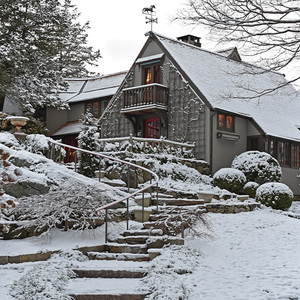I’m looking at purchasing a carbon monoxide detector for my home.
The lowest priced units run on batteries and cost $17 at wally world.
The highest priced detectors sell for $42 and they plug into an electrical outlet, have a battery back-up, and give a digital reading of the co 2 level in the house.
I have an older furnace and I’d like to be able to monitor it. I’m leaning toward buying the low priced unit. The package says detector meets “building codes”.
Any suggestions?
-Do the thing you fear and the death of fear is certain-















Replies
I'm inclined to err on the side of safety. I've got a kidde from a few years ago that plugs in and has battery backup. Its a small difference in price in the long run.
The lady across the street from me almost lost both her sons a couple of weeks ago because of a boiler problem. The boys sleep in the basement and one night the CO started to backup into the house. Fire dept came when the adults started to feel sick and called. Fortunately the boys happen to be sleeping upstairs that night - otherwise they might not have made it out. After hearing that story, $25 difference doesn't seem that much to me.
I have a 'nighthawk' that has a memory for the peak CO reading it detected. It's very comforting to push that button once in a while and see a zero.
Thank you for the suggestions. I went ahead and purchased the more expensive model and plugged it in this afternoon.It reads 0 when I look at the digital display. When I press the button that shows the highest recorded level it says 10.Ten is a low reading according to my instructions and is not a problem.Is anyone getting zero only readings? Anyone getting higher readings?++++++++++++++++
-Do the thing you fear and the death of fear is certain-
In NY state they have to be hardwired now, just like smoke detectors.
I've never read over 0 on my Nighthawk.Some cheap detectors have a detection device that has a limited lifetime (about a year) and which must be replaced if it's ever exposed to significant CO levels. The more expensive units can be cheaper in the long run.
If ignorance is bliss why aren't more people
happy?
Last year I wasn't always getting ignition on the first try when the oil burner kicked in (weak transformer was replaced), and when it caught on the second try, it belched quite a bit of smoke. During those few days I saw some non zero readings on the nighthawk located 10 feet from the burner, but neither before nor since.
I've never seen CO in a spray can, for testing detectors. Anyone else seen such a thing?One of these days I'll put a few hot charcoals in a coffee can to test the thing.
If ignorance is bliss why aren't more people
happy?
Yup, you can get that sort of thing from specialty gas companies, one I know of is Scott Gas (I used to work with gas analyzer equipment quite a bit at a former job.) They sell little spray paint can-size aerosols with dozens of different gases and concentrations, including CO. They're mainly used for calibrating industrial gas analyzers, and aren't particularly cheap (my ten year old Scott catalog shows they were nearly $50/can, so who knows what they cost now.)Go to the Scott Gas website at http://www.scottecatalog.com/SCOTTY.nsf/All?ReadForm, and click on 'Scotty 4'.
Edited 12/14/2005 1:32 pm ET by Stuart